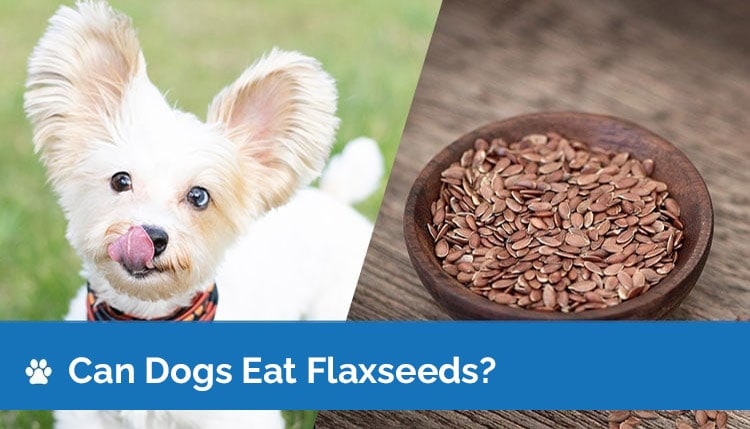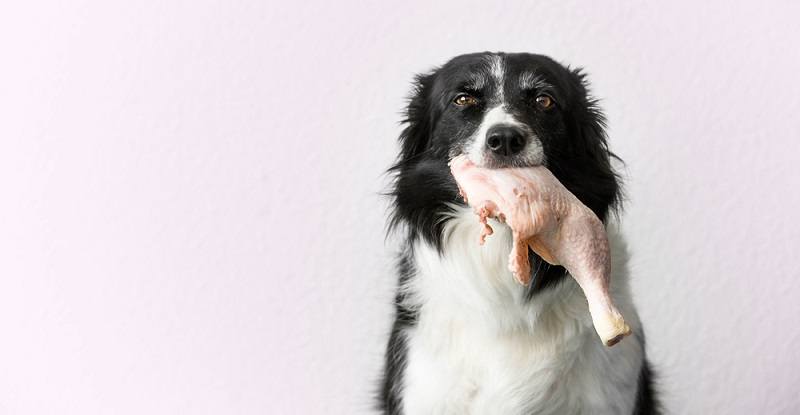Can your dog eat flax seeds? The short answer is yes, they can! And not only are they safe for dogs to eat, but they are highly nutritious too. Flax seeds are packed with omega-3 fatty acids, protein, and fiber and are an affordable and easy-to-prepare addition to your dog’s regular diet.
This “superfood” has long been used and loved by humans for its numerous health benefits, but is it as beneficial for your dog? Below we dig a little deeper into these amazing seeds to see if they are a good option for your beloved pooch.
What Are Flax Seeds?
Flax seeds, also known as linseeds, are commonly used throughout the world for food, oil, and textiles. They are small brown or golden seeds that can be eaten whole, ground into powder, or more commonly, pressed into oil. The plant itself has been used for centuries in textiles, due to its strong fiber. Flax seed cultivation was first recorded as far back as 3,000 B.C., so this nutritious and useful plant has a long history of human use.
Health Benefits of Flax Seeds
Flax seeds have several important health benefits, many of which will aid in your dog’s overall health and well-being. These include:
- Omega-3 fatty acids. This essential fatty acid helps keep your dog’s skin and coat healthy and shiny and aids in cardiovascular health.
- Flax seeds, whole, and ground are a great source of dietary fiber. This will keep your dog’s digestive tract healthy, prevent constipation, and stop loose stools.
- Cancer prevention. Flax seeds contain lignan, and studies have shown that consuming this plant compound may have a significant effect in lowering the risk of cancer. These compounds also help strengthen your dog’s immune system.
- Flax seeds contain a high amount of protein, which is essential for your dog’s muscle development and will aid in boosting their energy levels.
- Anti-inflammatory. The anti-inflammatory properties of flax seeds can help alleviate symptoms of arthritis, lower blood pressure, and improve kidney function in your dog.
Health Concerns of Flax Seeds
While Flax seeds are generally safe and beneficial to give your dog, there is the risk of flax poisoning. This is exceedingly rare, so if your dog is given the recommended daily amount, there should be no issue. In fact, it would take the ingestion of almost impossible amounts of flax powder to make your dog severely ill, and even then, death is highly unlikely.
That said, giving your dog too much flax seeds or powder can also result in bloating and gas due to the high fiber content. Flax oil will prevent this, but it is a fairly unstable oil that can go rancid quickly, potentially harming your dog.
Flax seeds, like many other seeds, contain phytic acid, which can impair the absorption of minerals like zinc, iron, and calcium. These effects will stop as soon as your dog stops eating flax, however, and will only occur when ingesting large amounts.

Preparing Flax Seeds
Now that you know that flax seeds are safe and beneficial for your dog, what is the best way to give these seeds to them? Flax has a somewhat nutty flavor that your pooch may or may not like, but when mixed into their regular meals, they’ll likely not even taste it. Flax comes in three basic forms, each with its unique benefits and downsides.
- Whole seeds. Whole, raw seeds are the easiest way to give your dog flax, but it’s possibly not the most efficient. This is because the seeds will often pass through your dog’s digestive system without being broken down and absorbed, hence negating most, if not all, the possible benefits.
- Flax Oil. Flax oil is a quick and easy way to add flax into your dog’s food and can be simply mixed in or used during cooking and preparation. The one downside is that flax oil is fairly unstable and can go rancid quickly.
- Flax powder. We recommend flax powder as the most effective method of getting the benefits of flax. The powder can be quickly and easily mixed into your dog’s regular food, without much change in taste or texture.
For small dogs, we recommend around half to a full teaspoon of flax powder a day and for larger dogs, up to a full tablespoon is sufficient.
Other beneficial seeds
Besides flax seeds, there are several other beneficial seeds to include in your dog’s diet. These include:
- Pumpkin seeds
- Chia seeds
- Hemp seeds (and hemp oil)
- Sunflower seeds
Conclusion
Flax seeds are not only perfectly safe for dogs to eat, but they can also provide a host of nutritional benefits. Essential fatty acids omega-3 and omega-6, protein, and fiber are among the many benefits of this nutritional food. There are a few small risks involved, but these can easily be avoided by not overfeeding flax to your dogs.
Flax seeds are a simple and affordable way to add essential nutrients into your dog’s diet, without them even knowing!
Featured Image: Pixabay







